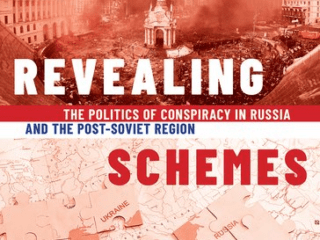(LSE Blogs) What motivates governments and other political actors to promote conspiracy theories? And what impact do these theories have on society? Drawing on a new book covering Russia and the post-Soviet region, Scott Radnitz explores the causes, consequences, and contradictions of conspiracism in politics.
Conspiracy theories have been in the news of late, often in discussions about the harmful spread of misinformation on social media. This ‘horizontal’ contagion of conspiracy theories through interpersonal networks is certainly alarming, but it distracts our attention from an important phenomenon in much of the world that is often overlooked by scholars of established democracies: the deliberate top-down promotion of conspiracy theories by political elites. This manifestation of conspiracy theories, as strategic political rhetoric rather than misguided belief, is the subject of my new book, Revealing Schemes.
The book takes in 12 post-Soviet states over 20 years. It treats conspiracy claims as one of several tools in the rhetorical arsenal of political actors and aims to explain when and how conspiracy theories emerge and endure. Paying attention to the media environment in this region reveals that conspiracy theories are rarely voiced by public officials in some countries and time periods, whereas they may appear episodically or even become ubiquitous in others. Having spent several years compiling a database of over 1,500 conspiracy claims from the post-Soviet media with the help of a dozen assiduous research assistants, I make several counterintuitive arguments based on this data. […]
Read More © LSE Blogs

For more information, see the author’s new book, Revealing Schemes: The Politics of Conspiracy in Russia and the Post-Soviet Region (Oxford University Press, 2021).











